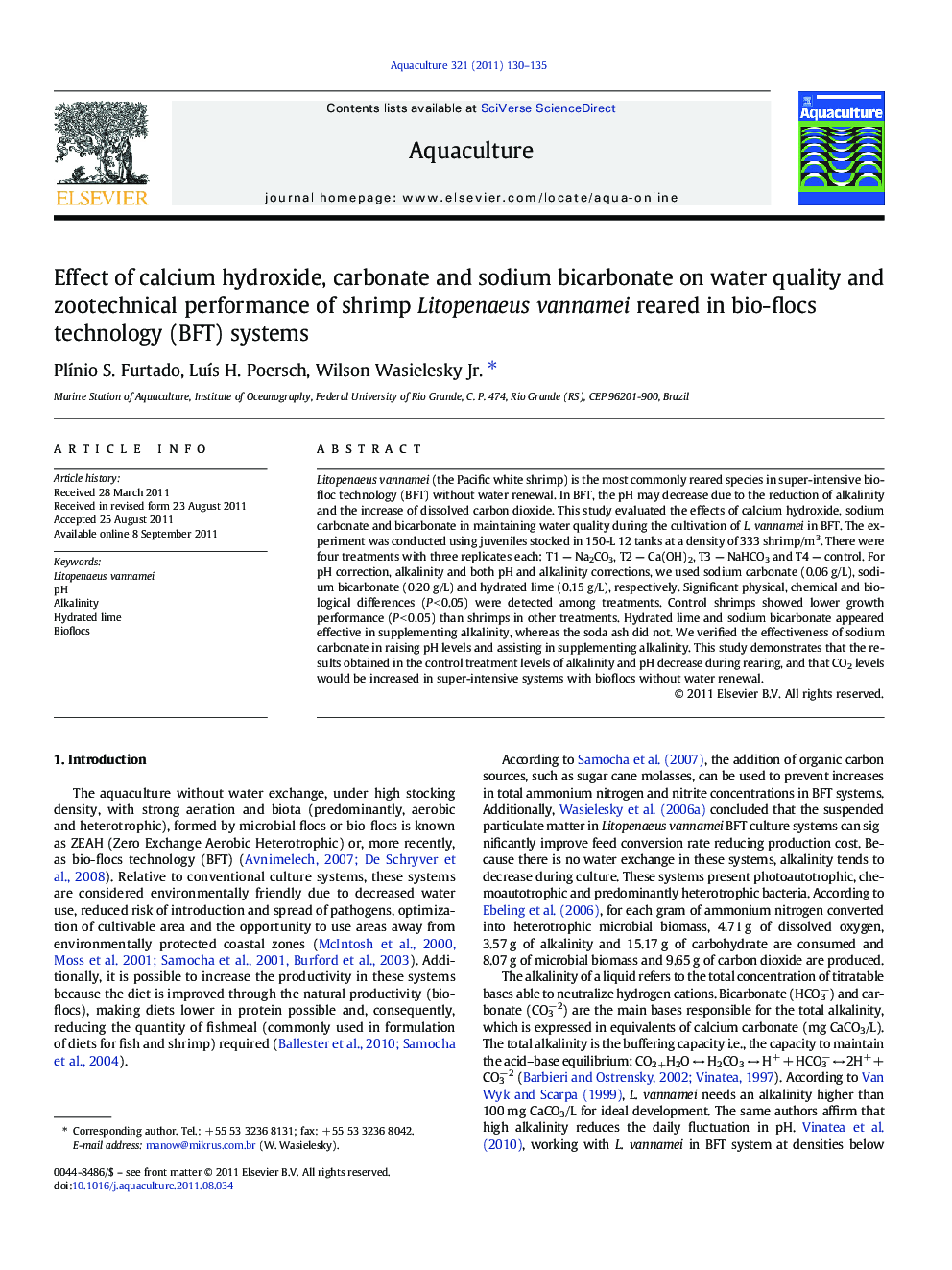| کد مقاله | کد نشریه | سال انتشار | مقاله انگلیسی | نسخه تمام متن |
|---|---|---|---|---|
| 2422882 | 1552900 | 2011 | 6 صفحه PDF | دانلود رایگان |

Litopenaeus vannamei (the Pacific white shrimp) is the most commonly reared species in super-intensive biofloc technology (BFT) without water renewal. In BFT, the pH may decrease due to the reduction of alkalinity and the increase of dissolved carbon dioxide. This study evaluated the effects of calcium hydroxide, sodium carbonate and bicarbonate in maintaining water quality during the cultivation of L. vannamei in BFT. The experiment was conducted using juveniles stocked in 150-L 12 tanks at a density of 333 shrimp/m3. There were four treatments with three replicates each: T1 — Na2CO3, T2 — Ca(OH)2, T3 — NaHCO3 and T4 — control. For pH correction, alkalinity and both pH and alkalinity corrections, we used sodium carbonate (0.06 g/L), sodium bicarbonate (0.20 g/L) and hydrated lime (0.15 g/L), respectively. Significant physical, chemical and biological differences (P < 0.05) were detected among treatments. Control shrimps showed lower growth performance (P < 0.05) than shrimps in other treatments. Hydrated lime and sodium bicarbonate appeared effective in supplementing alkalinity, whereas the soda ash did not. We verified the effectiveness of sodium carbonate in raising pH levels and assisting in supplementing alkalinity. This study demonstrates that the results obtained in the control treatment levels of alkalinity and pH decrease during rearing, and that CO2 levels would be increased in super-intensive systems with bioflocs without water renewal.
► It was tested three compounds to raise pH and alkalinity levels of the water in shrimp BFT culture systems.
► The high rate of respiration and metabolic process of bioflocs can increased CO2 concentration, and consequently consume alkalinity and decrease pH levels of water.
► In the control group where there was no alkalinity supplementation showed lower feed conversion rate and lesser productivity.
► Better results of growth performance were achieved when applied hydrated lime, sodium carbonate and sodium bicarbonate.
Journal: Aquaculture - Volume 321, Issues 1–2, 16 November 2011, Pages 130–135